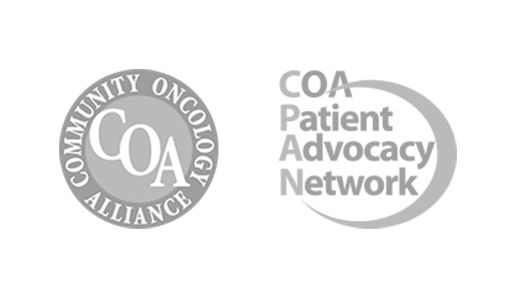
Leukemia cells and scienctist testing in laboratory
Someone is diagnosed with blood cancer about every three minutes in the U.S. New cases of blood cancer account for 10 percent of new cancer diagnoses each year.
Early diagnosis and treatment of Leukemia are major factors in survival rates. Read on to learn more about some of the early blood cancer symptoms you should never ignore.
What are Blood Cancers?
Most blood cancers begin in bone marrow where blood is produced. These cancers harm your blood’s production and function. The stem cells in bone marrow turn into three kinds of blood cells – white, red, or platelets.
When someone develops blood cancer, the normal blood cell production gets affected by the growth of the abnormal blood cell. These cancerous cells hinder your blood from normal functions such as stopping serious bleeding or battling infections. There are three main types of blood cancers: Leukemia, Myeloma, and Lymphoma.
Leukemia is a cancer in your blood marrow that causes a vast production of abnormal white blood cells. This prevents your body from fighting infection. These cells also hinder the bone marrow from producing platelets and red blood cells.
Myeloma is plasma cell cancer. These white blood cells create the antibodies in your body to fight and prevent infections and disease. This cancer will weaken your body’s immune system and make you vulnerable to infection.
Lymphoma hinders the lymphatic system that produces immune cells and eliminates surplus fluids from the body. Abnormal lymphocytes will multiply and collect in the lymph nodes along with other tissues. These cancerous cells damage the body’s immune system.
What are Blood Cancer Symptoms?
Symptoms vary for blood cancer, including leukemia. Here are some blood cancer symptoms you should watch out for. Many of these symptoms can feel like the flu and therefore could be easy to miss.
1. Pale Skin
When your body develops leukemia, the cancer damages blood cells, so your body has a hard time growing healthy blood cells. You may develop anemia, and one of the big symptoms of anemia is pale skin. Your hands may also feel cold to the touch.
2. Fatigue
Fatigue is a common symptom for many diseases. If you are feeling wiped out more than normal and notice a substantial change in your energy, you should see your doctor.
3. Infections and Fevers
Your blood cells help your immune system function. When these cells are unhealthy, your body’s immune system can’t function normally causing you to get sick more often. One of the most common first symptoms of leukemia is frequent fevers and infection.
4. Shortness of Breath
If you are feeling energy deprived, you should also keep an eye on any shortness of breath. If you get out of breath much easier during physical activity, you should take notice.
5. Poor Clotting and Bruising
When your body does not make enough platelets, you will bleed more than normal. You may also have a bloody nose more frequently. Other changes you should watch for related to your blood include:
- Unusual or frequent bruising
- Bleeding gums
- Small red dots on your skin
- Heavy periods
- Bowel movements with red streaks
All these symptoms can vary or be a sign of something else. It never hurts to discuss with your doctor.
Other Things to Watch For
In addition to the five symptoms above, there are also other things you should keep an eye on including:
- Chills
- Night sweats
- Achy or painful joints/bones
- Unexplained weight loss
- Swollen lymph nodes in groin, underarms, or neck
- Itchy skin
- Loss of appetite
- Nausea
- Headaches
Discuss these symptoms with your doctor. A blood test will show if there are any abnormal levels of white blood cells, red blood cells, or platelets. Your doctor may even want to do a bone marrow test.
What Causes Leukemia or Blood Cancers?
No one knows what causes leukemia or other blood cancers, and there are no ways to prevent it. There are certain things in the environment that can contribute to the development of this cancer including smoking, chemical exposure and radiation. Family history could also play a factor in your risk for leukemia.
Treatment Options
After your doctor performs the blood test and possibly bone marrow test, he or she will work with you to determine your blood cancer treatment. The recommended treatment plan depends on a number of factors including the type of cancer, how much it has spread, and your overall health.
Chemotherapy kills cancer cells in your bone marrow and blood. You can get this medicine in different forms including a pill, fluid in your spinal cord, or an injection in your muscle or vein.
Radiation kills leukemia cells with high energy X-rays to prevent the cells from growing. You can get radiation in just one part of your body or in multiple parts depending on how much the cancer has spread.
Targeted therapy blocks specific proteins and genes to prevent cancer cells from growing. These drugs stop the leukemia cells from growing and dividing or can cut off the blood supply.
Stem cell transplants replaces the leukemia cells with healthy new ones that make blood. Your body can get these cells from your body or from another donor. You will first need to destroy the cancer cells in your body with chemotherapy.
Immunotherapy aids your body’s immune system to help it find and destroy cancer cells. Drugs such as interferon or interleukins can help increase the body’s defenses against the cancer.
How to Find Support and Cope
All of this can be overwhelming, and getting diagnosed with a blood cancer is devastating. Do your research to discuss treatment options with your doctor. You need to take good care of yourself, so keep your friends and family close or join a support group.
Take time to right down all your questions before any appointment. You may also want to take a family member or friend along for support.
The good news is that survival rates have improved over the years. Early diagnosis is key, so make sure you stay on top of your health and note any changes immediately.
Looking for Cancer Treatment?
If you have some of the blood cancer symptoms listed above, do not wait to visit a doctor. Check out AO Multispecialty Clinic for local, community-based care from a team of physicians offering the most advanced treatments. Contact us today for the best therapy and diagnosis options or stay up-to-date with the latest cancer treatments on our blog.






